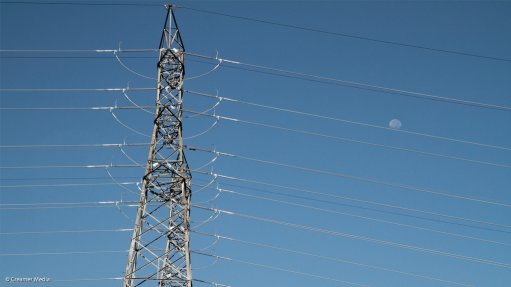Opinion: Treasury dismissing vital climate financing incentives as EU carbon sanctions come closer
In this article, DG Capital African Green Alpha director Shaun Nel takes a critical look at how and why renewables tax incentives need to be better leveraged in the Just Energy Transition (JET) and South Africa’s economic recovery, and how the looming EU Carbon Border Adjustment Mechanism (CBAM) makes this imperative that much more urgent.
Any keen South African investor would be forgiven for being distracted from our JET by a loadshedding-free winter coupled with a Government of National Unity (GNU). Many surface anxieties and worries have been quelled, and it seems we’re starting to tentatively believe that just maybe, this time, the glimmers of growth and change around us will materialise in economic growth and job creation, and soon.
But the obvious reality is that our economy can only grow if our energy supply grows too – and rapidly – and the looming Carbon Border Adjustment Mechanism of the European Union will soon darken all those hopes and dreams before you can say CBAM.
CBAM is poised to significantly impact the JET specifically, and our economic and industrial growth more broadly. Designed to impose tariffs on imports to the EU from countries with less stringent carbon regulations, CBAM aims to prevent carbon leakage and incentivise global emissions reductions. The EU Commission reports that the CBAM aims to “put a fair price on the carbon emitted during the production of carbon-intensive goods that are entering the EU, and to encourage cleaner industrial production in non-EU countries.”
For South Africa, and our grid’s tethering to coal combined with a challenging transition to cleaner energy sources, CBAM presents both challenges and opportunities.
Simply put, our export-driven industries are in for a hellish ride. As the EU imposes carbon costs on designated products imported into the EU from January 1, 2026, South African goods – particularly those from carbon-intensive sectors like iron, steel and cement – can expect to face higher tariffs.
According to Wesgro, in 2023, “R43.4-billion worth of South African exports earmarked for the EU fell within the ambit of the EU CBAM. This exposure presents a potential export risk of about 2.13% of South Africa’s total global exports, with an associated decline in nominal GDP of 0.62%.”
South Africa's competitiveness in the European market can expect to come under huge pressure, and key industries that are also vital employers will have to grapple with immense financial, human and environmental costs.
Our shift to a low-carbon economy must accelerate, and rapidly, towards renewable energy sources, and it is vital that this be done with a more concerted effort from our Treasury to incentivise the right behaviour, and the right investments, to support the determined work under way.
It doesn’t have to be doom, gloom and joblessness though. The opportunity presented by CBAM is that South Africa has a clear and strong impetus to enhance our renewable energy infrastructure. By aligning with global carbon pricing mechanisms, South Africa could reduce its exposure to CBAM-related tariffs and improve its trade competitiveness. The mechanism could therefore be seen to act as a catalyst for investment in renewable energy, driving both technological advancements and job creation across our economy. This alignment could also help South Africa meet its climate targets and attract more international funding for green projects in an economy, provided we heed the call immediately and all pull in the same direction, including through tax incentives, towards an opportunity-filled future for South Africans.
Treasury’s approach to incentives can be described as conservative at best, vehemently opposed at worst. South African Revenue Service Commissioner Edward Kieswetter frequently points out their concern that unscrupulous taxpayers abuse and misuse incentives, coupled with the immediate impact on the fiscus.
But in the case of renewable energy, an approach like this misses the mark on what’s needed to direct and encourage sustainable climate financing to the right projects, right now, in our JET.
We need all levers to pull in the same direction, including at the Treasury, if we’re to meet our climate targets, and this can only be done with concerted, practical and incentivised behaviour towards a clear goal of cleaner energy. Of course, any abusers should be held accountable.
In 2023, Treasury introduced section 12BA to the Income Tax Act as a temporary expansion of tax incentives for businesses to promote renewable energy. To date, the incentive has helped to drive significant private investment in solar and other renewables to alleviate South Africa’s energy crisis. The incentive operates simply and effectively: Businesses can claim a 125% deduction in their first year of investment in renewable energy projects, with no thresholds on generation capacity, and the incentive is available for investments brought into use for the first time between March 1, 2023, and February 28, 2025.
While incentives like 12BA mean that the fiscus does take a short-term knock, more importantly it means that an encouraged and sustainable tax base is being supported over the longer term. In the case of renewables projects incentivised through 12BA, the tax base is broadened and the outcomes of these projects – cleaner power and technologies plus diversified skills and job creation – combine to stabilise our broader economy towards growth.
In Germany’s Energiewende, or "energy transition" policy, Germany's commitment to renewable energy, supported by generous subsidies and tax incentives, has led to a significant expansion in the renewable energy sector. This transition not only helped Germany reduce its carbon emissions but also bolstered its economy, creating thousands of jobs and positioning the country as a leader in green technology exports. The German experience illustrates how strategic incentives can drive substantial economic and environmental benefits, serving as a valuable model for South Africa’s own renewable energy imperative.
Instead of letting an incentive like 12BA lapse at the end of February 2025, Treasury should be doing all it can to attract even more renewables investments for a rapid and responsible transition to a decarbonised economy. Treasury should extend 12BA for a further two years if South African industry is to survive global carbon pricing mechanisms like the CBAM, by enhancing our energy transition right now.
Article Enquiry
Email Article
Save Article
Feedback
To advertise email advertising@creamermedia.co.za or click here
Announcements
What's On
Subscribe to improve your user experience...
Option 1 (equivalent of R125 a month):
Receive a weekly copy of Creamer Media's Engineering News & Mining Weekly magazine
(print copy for those in South Africa and e-magazine for those outside of South Africa)
Receive daily email newsletters
Access to full search results
Access archive of magazine back copies
Access to Projects in Progress
Access to ONE Research Report of your choice in PDF format
Option 2 (equivalent of R375 a month):
All benefits from Option 1
PLUS
Access to Creamer Media's Research Channel Africa for ALL Research Reports, in PDF format, on various industrial and mining sectors
including Electricity; Water; Energy Transition; Hydrogen; Roads, Rail and Ports; Coal; Gold; Platinum; Battery Metals; etc.
Already a subscriber?
Forgotten your password?
Receive weekly copy of Creamer Media's Engineering News & Mining Weekly magazine (print copy for those in South Africa and e-magazine for those outside of South Africa)
➕
Recieve daily email newsletters
➕
Access to full search results
➕
Access archive of magazine back copies
➕
Access to Projects in Progress
➕
Access to ONE Research Report of your choice in PDF format
RESEARCH CHANNEL AFRICA
R4500 (equivalent of R375 a month)
SUBSCRIBEAll benefits from Option 1
➕
Access to Creamer Media's Research Channel Africa for ALL Research Reports on various industrial and mining sectors, in PDF format, including on:
Electricity
➕
Water
➕
Energy Transition
➕
Hydrogen
➕
Roads, Rail and Ports
➕
Coal
➕
Gold
➕
Platinum
➕
Battery Metals
➕
etc.
Receive all benefits from Option 1 or Option 2 delivered to numerous people at your company
➕
Multiple User names and Passwords for simultaneous log-ins
➕
Intranet integration access to all in your organisation




















